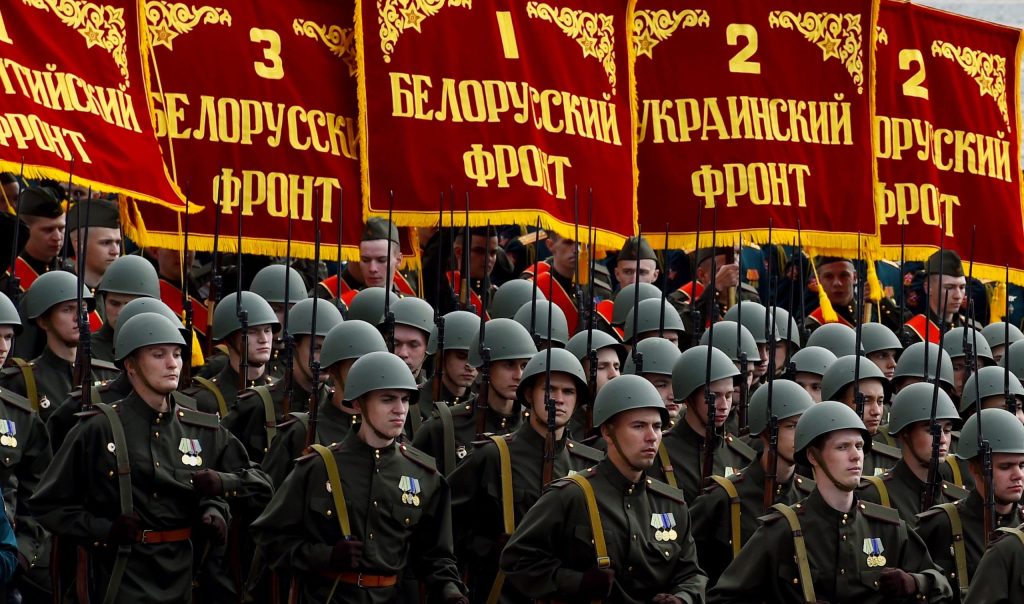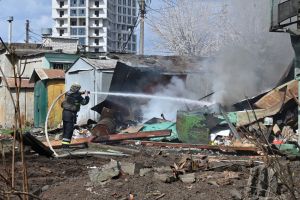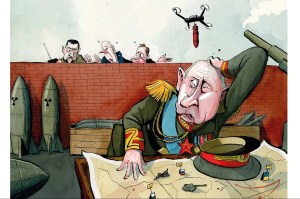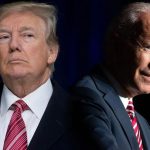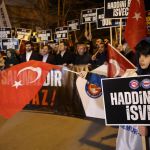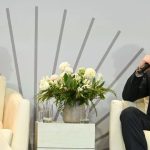One thing we know that Putin reads is history. He’s keen on chronicles and biography of great Russians, presumably with an eye to his own reputation. And this may help explain why he’s increasingly trying to control his country’s backstory.
In Russia, September 1 is not just the start of the school year, it is Den’ Znanii or ‘knowledge day’. There is a whole ritual, a celebratory welcome to all the new crop of children coming from kindergarten to big school, with sonorous speeches about the value of learning and the promise of a new generation.
For the head of state, this is usually a softball opportunity to play the role of father of the nation. This year is, of course, a more awkward affair; students’ temperatures were scanned while teachers and support staff were tested for coronavirus. So this was a time for particular reassurance.
Putin’s official address, with its ‘kind words’ for parents and thanks to children’s ‘loved ones’, was warm and fuzzy enough. Then things took a more surreal and menacing turn as he warned the assembled seven-year-olds (and, of course, the educational establishment) against the ‘collaborationists’ trying to rewrite history to Russia’s discredit.
The particular bee in his bonnet is the 1939 Molotov-Ribbentrop pact, the infamous non-aggression deal that, in a secret protocol, divided up central and eastern Europe. This was ruthless statecraft on both sides; that Nazi Germany and the USSR would be fighting each other sooner or later was obvious, but they each had their reasons to delay the inevitable.
It was a cynical move in, frankly, a cynical time, and for years even Russian historians recognized that. For whatever reason, though, Putin has come to regard this as, well, his Stalingrad, the place he will fight to the last rubbled building. He claimed, in a lengthy and lightweight article in the National Interest that it was actually the Western countries’ ‘Munich betrayal’ that ‘made the great war in Europe inevitable’.
Diplomatic demarches, ponderous TV documentaries, waspish tweets — no medium seems exempt from the new need to refight the historical war. Why? The more Moscow pushes, the more others push back, with a no-less-unbalanced new school of thought emerging in some circles that Hitler and Stalin share equal blame for World War Two.
In part, this is just an autocrat’s self-indulgence, but more importantly, it is because World War Two — the Great Patriotic War in the Russian lexicon — represents a crucial moment of national unity and triumph, one Putin is trying to mobilize in his drive to assert his country’s greatness. To the outside world, the implicit claim is that Moscow bought a special claim to great power status with the blood of its 20 million war dead. At home, the lesson is that Russia is always under existential threat — but can triumph so long as it is strongly united and strongly led.
[special_offer]
This is a message the Kremlin is hammering home on every front. In a glossy multimedia exhibition launched in Moscow, conquest by the Mongols in the 13th century is down to the disunity of the medieval principalities. Defeat at the hands of Poles in the 17th century, and the Germans in World War One? National discord and the absence of a strong czar.
The subtext is hardly subtle: accept the regime, with all its flaws, because it offers the strength that can keep Russia safe. And those pesky historians with their pettifogging concerns about accuracy do get in the way.
After I had finished writing A Short History of Russia, with its emphasis on national myths, the stories Russians tell themselves about themselves, a Russian asked me whether I was ready for the backlash. After all, they said, ‘when the czar makes himself historian-in-chief, scholarship becomes subversion.’
This article was originally published onThe Spectator’s UK website.
